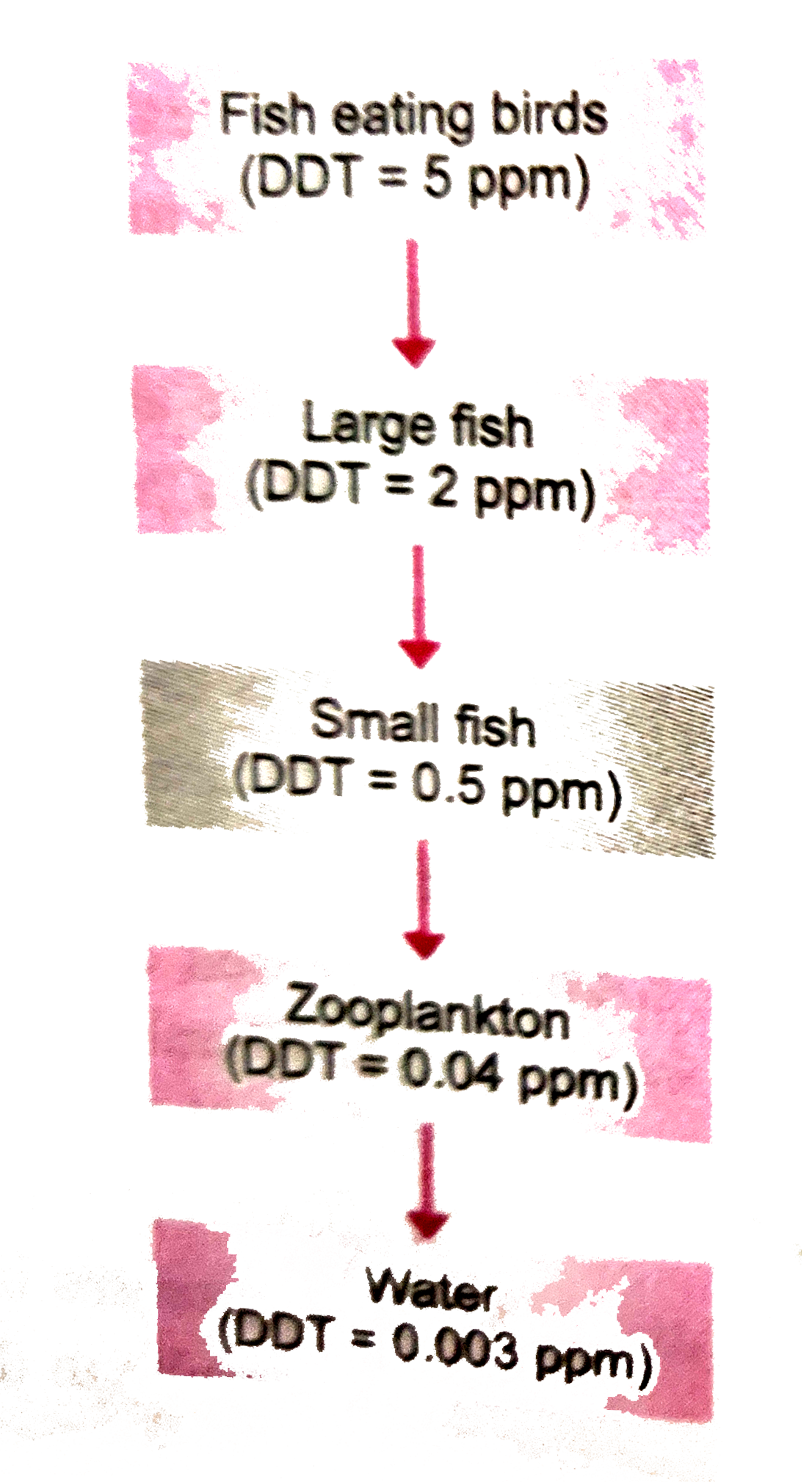The pollutants from man’s activities like effluents from the industries and homes can radically accelerate the aging process. This phenomenon has been called
Cultural Eutrophication
Natural Eutrophication
Accelerated Eutrophication
Both A and C
The correct Answer is:D
The pollutants from man’s activities like effluents from the industries and homes can radically accelera te the ageing process, This phenomenon has been called cultural or accelerated eutrophication.
Topper's Solved these Questions
- ENVIRONMENTAL ISSUESBook:A2ZChapter:ENVIRONMENTAL ISSUESExercise:Section A: Topicwise Questions (topic 3: Solid, Wastes, Agro-chemicals And Their Effects, Radioactiv
Explore 23 Videos
- ENVIRONMENTAL ISSUESBook:A2ZChapter:ENVIRONMENTAL ISSUESExercise:Section A: Topicwise Questions (topic 4:green House Effect And Global Warming )
Explore 26 Videos
- ENVIRONMENTAL ISSUESBook:A2ZChapter:ENVIRONMENTAL ISSUESExercise:Section A: Topicwise Questions (topic 1: Air Pollution And Its Control) Controlling Vehicular Air Po
Explore 54 Videos
- ECOSYSTEMBook:A2ZChapter:ECOSYSTEMExercise:Section-d Chapter-end Test
Explore 50 Videos
- EVOLUTIONBook:A2ZChapter:EVOLUTIONExercise:Section D : Chapter-end Test
Explore 50 Videos
Similar Questions
Assertion : Cultural eutrophication is nutrient enrichment of water bodies due to human activities like passage of sewage, industrial effluents, etc.
Reason : The prime contaminants from sewage and industrial effluents are nitrates and phosphates, which act as plant nutrients and overstimulate the growth of algae.
View SolutionCreate an aquatic food chain in a water body into which effluents flow from a pesticide factory. Diagrammatically represent and answer the following questions :
(i) What is the phenomenon called? (ii) Explain biomagnification of pesticide.

View Solution
Knowledge Check
Pollutants from man's activities like effluents from the industries and homes can radically accelerate the ageing process known as :
ABiomagnificationBBoDCAccelerated EutrophicationDCODWhich of the following statements regarding eutrophication are correct ?
(i) Eutrophication is the natural ageing of a lake by nutrient enrichment of its water.
(ii) Pollutants from human activities like effluents from the industries and homes can radically accelerate the aging process of a lake. This phenomenon is called as cultural or accelerated eutrophication.
(iii) The plant nutrients responsible for eutrophication are nitrates and phosphates.
(iv) These phosphates and nitrates accelerate the growth of algae, which utilise oxygen and may deoxygenate the water to kill the fish and other aquatic animals.A(i) and (ii)B(iii) and (iv)C(i), (ii) and (iii)D(i), (ii), (iii) and (iv)Go through the following statements.
A. It is the natural aging of a lake by nutrient enrichment of its water
B. In a young lake the water is cold and clear and supports less life.
C. The nutrients such as sulphur and phosphorus encourage the growth of aquatic organisms in the lake,
D. Pollutants released by man radically accelerate the aging process of a lake.
E .Overgrowth of algae leads to scum that depletes the level of dissolved oxygen in the water. Which of the above statements does not apply to eutrophication?AA and BBB and CCC onlyDD and E
In given statement followed by three courses of action numbered I,II and III. You have to assume everything in the statement to be true, then decide which of the three suggested courses of action logically follows for pursuing.
Statement Drinking water supply to New Bombay has been suspended till further orders from Maharashtra Pollution Control Board following pollution of Patalganga river,caused by discharge of effluents from some chemical industries.
Courses of action I. The industries responsible for discharging effluents into the river should be asked to close down immediately.
II. The river water should immediately be treated chemically before resuming supply.
III. The Pollution Control Board should check the nature of effluents being discharged into the river by industries at regular intervals.
(a) Only I follows
(b) Only II and III follow
(c) Only III follows
(d) All follow
(e) None of these
View SolutionThe material A is fossil fuel which is extracted from the earth. It is said to be formed from the buried , large land plants by a very slow process B. When A is heated in the absence of air in a process called C, then it gives three products D, E, and F. The product D is used as a reducing agent in the extraction of metals the product E is used as an industrial fuel whereas the product F has been traditionally used for metalling the roads .
c) Name the processes (i) B and (ii) C.
View SolutionThe material A is fossil fuel which is extracted from the earth. It is said to be formed from the buried , large land plants by a very slow process B. When A is heated in the absence of air in a process called C, then it gives three products D, E, and F. The product D is used as a reducing agent in the extraction of metals the product E is used as an industrial fuel whereas the product F has been traditionally used for metalling the roads .
b) What is (i) physical state , and (ii) colour of A ?
View SolutionA farmer wanted to separate the grains from the chaff. This can be achieved by the process called
View SolutionAssertion Liquid waste products from industrial processes and domestic activity are termed as effluents.
Reason Fertiliser factories, steel and textile sugar mills are some industries, which release effluents.
View Solution

